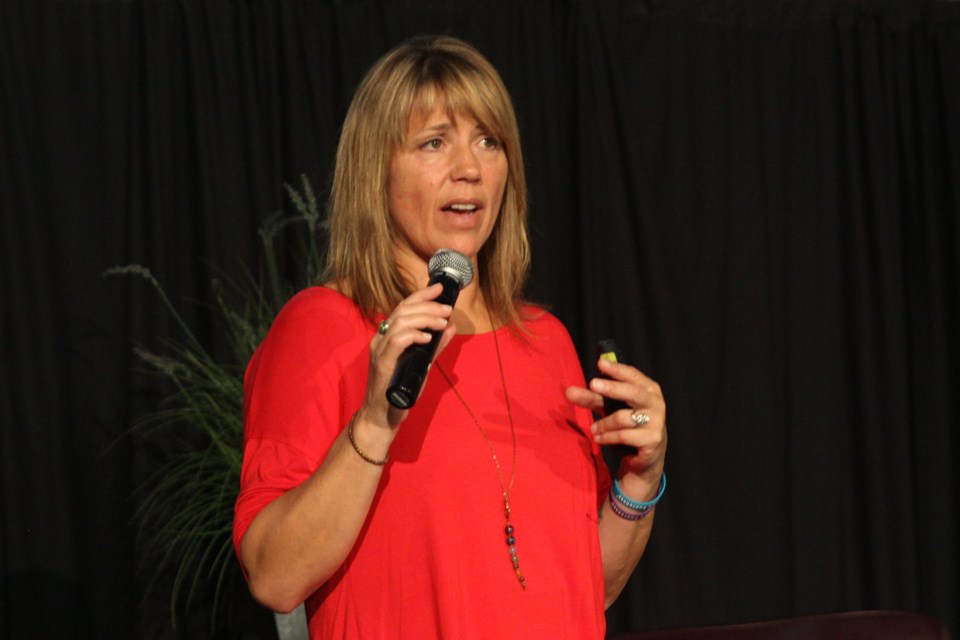THUNDER BAY – Leah Parsons is too familiar with the bullying and harassment that today’s youth experience.
She is the mother of Rehtaeh Parsons, the Nova Scotia teen who five years ago committed suicide at 17 after a photo of her being sexually assaulted was widely circulated among her classmates and followed her around for more than a year.
“The issues of sexualized violence, youth mental health and cyber abuse are issues that every single community around the world is dealing with,” Parsons said before participating in a Friday morning talk at Confederation College during a visit in the city as part of a cross-country tour for The Uncommon Woman.
“We need to have these conversations to give others a platform to be able to know they’re not alone, to know there’s help, that they can reach out and get help and to speak their truth. When you bottle things up and you keep it down, it just causes more mental health struggles.”
Rehtaeh, then 15, was at a small house party in November 2011 with one other teenage girl and four boys when they started drinking. The night’s tragic legacy was captured with a photo of one of the boys engaged in a sexual act with Rehtaeh while she was leaning out the window vomiting.
It didn’t take long before that photo made its way throughout the student body at her high school, leading to Rehtaeh becoming vilified and shamed by her peers.
For nearly a year and a half, Rehtaeh could not escape the photo. It didn’t matter how many times she tried to go to a new school, it was only a matter of time before the photo would resurface.
In April 2013, Rehtaeh committed suicide in her family home.
“The dangers that come along with that and taking digital responsibility for your actions is so important because even as adults it’s really easy to hit send,” Parsons said.
“When we get angry we just hit send, and adults do that. Young people don’t have as much impulse control to say, ‘wait a second, let me just take a breaker or a breather.’ Those words, you can’t see the person on the other end and they do impact somebody’s mental health.”
Uncommon Woman founder Marlo Ellis, who describes the movement as a platform for women to have a safe community to share incredible stories that are not necessarily talked about publicly where they can be heard and seen.
It’s important for teens and young adults to learn from the story, Ellis said.
“This is a high-risk population. The high school, college, university age, there’s a lot going on and this is a hot topic on campus,” Ellis said.
“Just bringing awareness to students, giving them a platform where they can feel comfortable having conversations, asking questions, talking to people like Leah Parsons who have experience with a daughter who has died by suicide and has experienced sexual violence and has also experienced cyberbulling, she is just a plethora of knowledge.”
Since Rehtaeh’s death, inquiries and reviews have addressed deficiencies with how police and health care facilities did not protect her and federal legislation has been enacted to make it illegal to share intimate images without consent.
But Parsons is hoping, and seeing, a more lasting impact through the conversations that have happened.
“What was happening before is that there was a lot of conversations, of course females know that we have to keep our females safe but who was having the conversations with the males about consent and what it means to have consent?” Parsons said.
“When I go into schools I have young boys coming up to me all the time to say they get it and they understand because if Rehtaeh found herself in a home where those four males had the same conversations I had with her, I wouldn’t be standing here today.”
